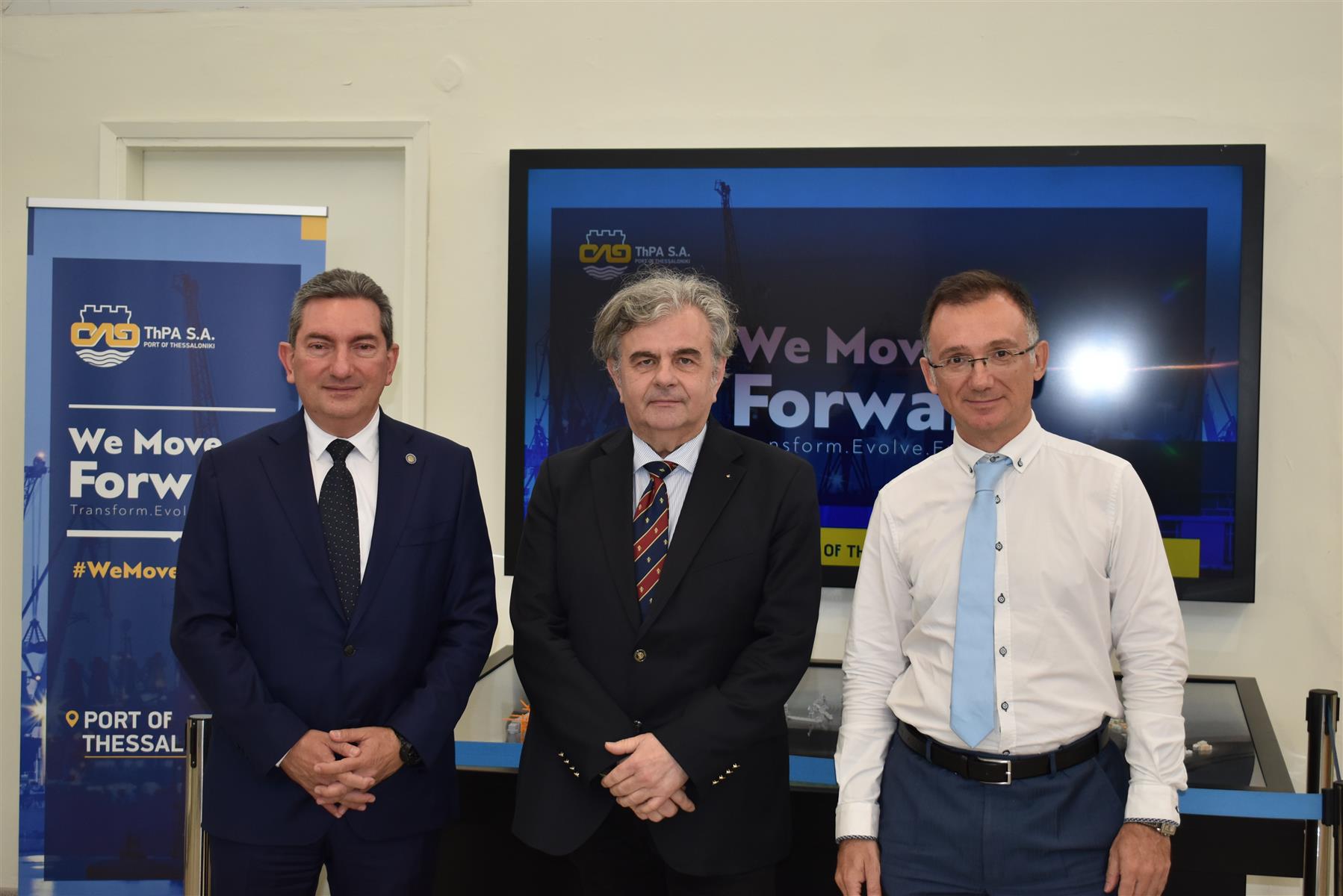As part of the visit to Greece, the Executive Director of the Economic Chamber of North Macedonia and Deputy President of the National Export Council, Antoni Peshev, held a meeting with the management of the Port of Thessaloniki. The meeting discussed the benefits of using this port by Macedonian companies, the prospects for Macedonian exporters, and the importance of good infrastructural connectivity with Thessaloniki.
The meeting also included representatives from some of the largest Macedonian users of the Port of Thessaloniki. They emphasized that the Port of Thessaloniki holds primary importance for Macedonian exporters, as it is the natural route for goods destined for our country, offering lower transportation costs due to its proximity to Macedonia compared to other ports in neighboring countries.
Management of the Port of Thessaloniki indicated that North Macedonia is among the top 10 countries using this port for goods flow. During the meeting, the parties collectively noted that the governments of both countries should further invest in infrastructural connectivity with the Port of Thessaloniki. Modernization of rail transport was identified as a priority, emphasizing the importance of linking the railway Corridor 10 with Serbia for uninterrupted freight transport, leveraging the benefits of the Open Balkans agreement.

Additionally, models were discussed to enhance trade and increase benefits for Macedonian companies. This includes establishing a free economic zone for Macedonian operators, setting a legal framework for extending Greek locomotive routes into Macedonian territory, liberalizing railway traffic, and allowing private operators to enter. These priorities aim to facilitate trade processes through the Port of Thessaloniki, which is of considerable importance for Macedonian exporters.
The proximity of the Port of Thessaloniki is of great significance to the Macedonian economy. It facilitates international transactions, especially for the shipment and receipt of goods to and from distant global destinations. The most prevalent products transported through the Port of Thessaloniki in the last five years include nickel ore, coal, pet coke, ferronickel, raw dry olives, iron bars, concrete slabs, slag, and others.
Privatized in 2018, the Port of Thessaloniki aims to boost economic activity in South-East European countries following the completion of upgrades and infrastructure construction, with investments totaling 180 million euros. These efforts will allow the second-largest container terminal in Greece to compete soon with other major ports in size and capacity. With such investments, the new owners plan to establish the Port of Thessaloniki as a regional transportation hub, aiming to provide access for the largest global and regional carriers.
.jpg)